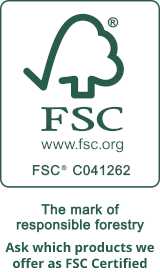What is the best finish for butcher block & solid wood surfaces?
We break down the pros and cons of some of the most common choices.

HOW TO CHOOSE THE BEST FINISH FOR SOLID WOOD SURFACES & BUTCHER BLOCK
Sustainable Northwest Wood offers three styles of Solid Wood Surfaces: Side grain Butcher Block, Plank Style, and End Grain. Popular for kitchens, bathrooms, laundry rooms, workstations, bar tops, desks, shelving and more, solid wood surfaces add warmth, texture and beauty that connects us to nature. All of our wood products come from local, sustainable sources.
Wood surfaces need to be sealed with a protective finish to prevent water, wine, and daily use from damaging or staining it. There are many products available that are appropriate to seal and protect your new Solid Wood Surface.
Choosing the best finish depends on how you plan to use it.
Solid Wood Surfaces intended for direct cutting should be sealed with a food grade finish designed to be reapplied frequently to re-seal the knife cuts. There are countless brands and combinations of ingredients that are designed to seal and protect chopping surfaces. We love Walrus brand cutting board oil, which is a blend of coconut oil, beeswax, mineral oil, and vitamin E. Check Walrus Oil for more information and purchasing.
Surfaces that will be used without direct cutting can be sealed with a number of appropriate products, each with pros and cons, unique protective characteristics, ingredients, and care & maintenance.
POLYURETHANE vs OIL
Polyurethane is a liquid coating that dries into a plastic-like protective film. Poly finishes provide thorough water protection, require little maintenance, and can withstand high traffic abuse. This finish is a petrochemical resin that may contain ingredients known to cause health issues. It provides great protection and withstands chemical cleaning, but it feels and looks like a layer of plastic covering your beautiful wood. Poly finishes generally must be removed completely before any scratches or worn spots can be repaired, meaning the countertop will need to be sanded entirely clean before any new finish can be reapplied.
Oil finishes penetrate the wood, bringing out the color, luster, and natural beauty, providing direct contact with the warmth and texture of the wood. They provide good protection and are silky to the touch. Oil finishes can be spot repaired without the need to refinish the entire surface. They do require regular maintenance, which is usually just a reapplication, maybe once a year, depending on the amount of use. Oil finishes are sensitive to harsh chemical cleaning and may not be ideal for commercial applications.
We stock and recommend Rubio Monocoat Oil Plus 2C, a penetrating, hard-wax oil finish for Solid Wood Surfaces that are not used for chopping. Oil Plus 2C is a zero VOC, linseed-based oil, that is food contact compliant. It forms a molecular bond with the fibers of the wood, resulting in a durable finish with great water resistance, while keeping the natural look and feel of the wood. It is easy to apply and maintain and is available in a variety of colors. We stock Pure, Natural, Charcoal and Chocolate. All other color options can be ordered directly from Rubio Monocoat.
WHAT PRODUCT TO CHOOSE
We recommend doing your own due diligence and research in choosing a finish based on your intended use, the required maintenance, and the desired look and feel of the finished piece, as well as ingredients and food contact safety.
Click here for some common choices and the pros & cons of each:


Project Support
Find local sustainable wood products in Portland Oregon

Our Why
We exist to promote Good Wood in the Pacific Northwest and beyond
Sustainable Northwest Wood
2701 SE 14th Ave.
Portland, OR 97202
Monday - Friday
8am to 5pm

© 2025 Sustainable Northwest Wood

Our nonprofit parent company is Sustainable Northwest